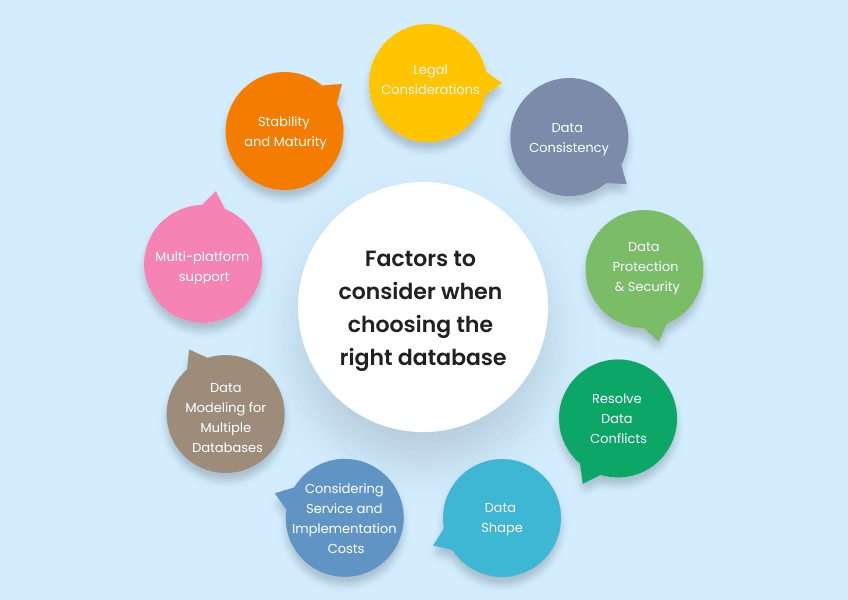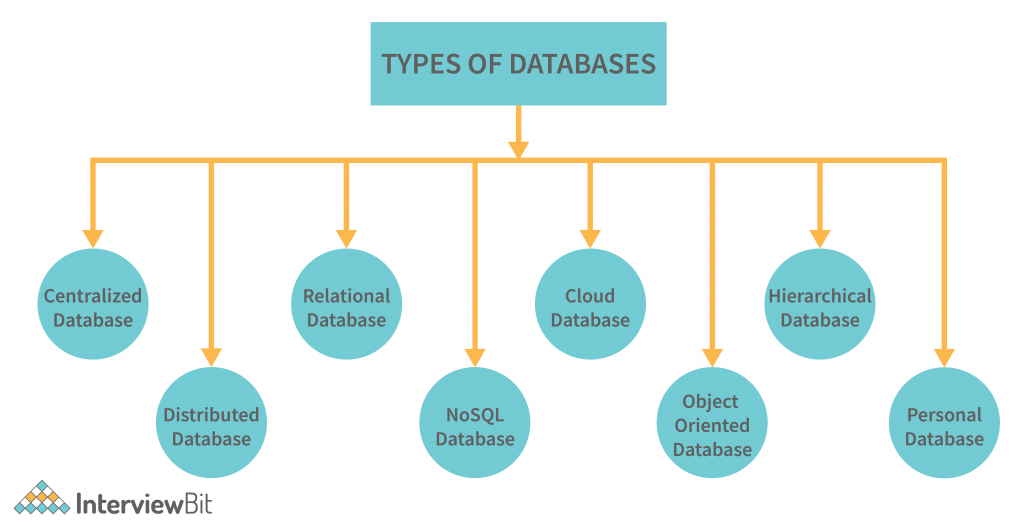
Choosing the Right Database for Your Application
"Selecting the ideal database for your application is crucial for performance and scalability. Learn how to navigate the options and factors involved in making this critical decision to ensure your application's data management aligns perfectly with your project's needs and goals."
Choosing the right database for your application is an important decision that can have a significant impact on its performance, scalability, and security. There are many different types of databases available, each with its own strengths and weaknesses. To choose the right database for your application, you need to consider your specific needs and requirements.

Here are some factors to consider when choosing a database:
- Data model: What type of data will you be storing in the database? Some databases are better suited for certain types of data than others. For example, relational databases are good for storing structured data, while document databases are good for storing unstructured data.
- Data volume: How much data do you need to store? Some databases are better suited for large datasets than others. For example, NoSQL databases are often used for storing large datasets because they can scale horizontally.
- Performance: How important is performance to your application? Some databases are faster than others, especially for certain types of queries. For example, in-memory databases are very fast for reading and writing data.
- Scalability: How much do you expect your application to grow in the future? Some databases are more scalable than others. For example, cloud-based databases can scale easily to meet the needs of growing applications.
- Security: How important is security to your application? Some databases have more robust security features than others. For example, enterprise databases often have features such as data encryption and access control.

Once you have considered your specific needs and requirements, you can start to narrow down your choices. It is a good idea to read reviews and compare features of different databases before making a decision.
Here are some popular database types and their use cases:
- Relational databases: Relational databases are the most common type of database. They store data in tables, which are made up of rows and columns. Relational databases are good for storing structured data, such as customer information, product data, and financial data. Some popular relational databases include MySQL, PostgreSQL, and Oracle Database.
- NoSQL databases: NoSQL databases are a newer type of database that is designed to handle large datasets and complex queries. NoSQL databases are often used for web applications, social media applications, and mobile applications. Some popular NoSQL databases include MongoDB, Cassandra, and Redis.
- In-memory databases: In-memory databases store data in memory, which makes them very fast for reading and writing data. In-memory databases are often used for applications that require real-time performance, such as stock trading applications and gaming applications. Some popular in-memory databases include Memcached and Redis.
- Cloud-based databases: Cloud-based databases are hosted in the cloud, which means that you do not need to manage your own hardware and software. Cloud-based databases are a good option for businesses that need a scalable and reliable database solution. Some popular cloud-based databases include Amazon RDS, Google Cloud SQL, and Microsoft Azure SQL Database.

If you are not sure which type of database is right for your application, you can consult with a database expert. They can help you assess your needs and choose the right database for your specific requirements.
Tips for choosing the right database
Here are some tips for choosing the right database for your application:

- Start by identifying your needs and requirements. What type of data will you be storing? How much data do you need to store? How important is performance and scalability?
- Research different types of databases. Learn about the strengths and weaknesses of different database types. Read reviews and compare features.
- Consider your budget. Some databases are free and open source, while others are commercial products.
- Think about the future. Choose a database that is scalable and can meet your future needs.
- Get help from a database expert. If you are not sure which database is right for your application, consult with a database expert.
Choosing the right database for your application is an important decision, but it does not have to be overwhelming. By following the tips above, you can choose the right database for your specific needs and requirements.
